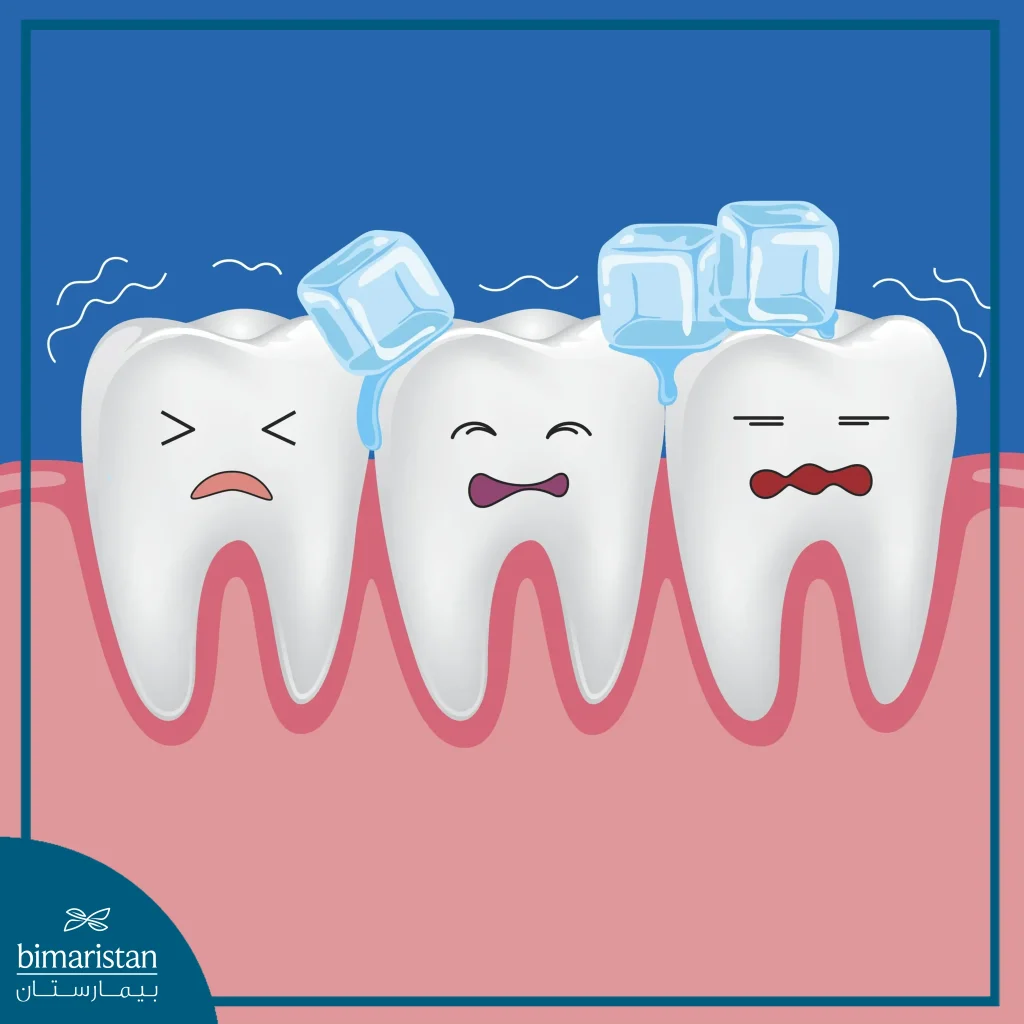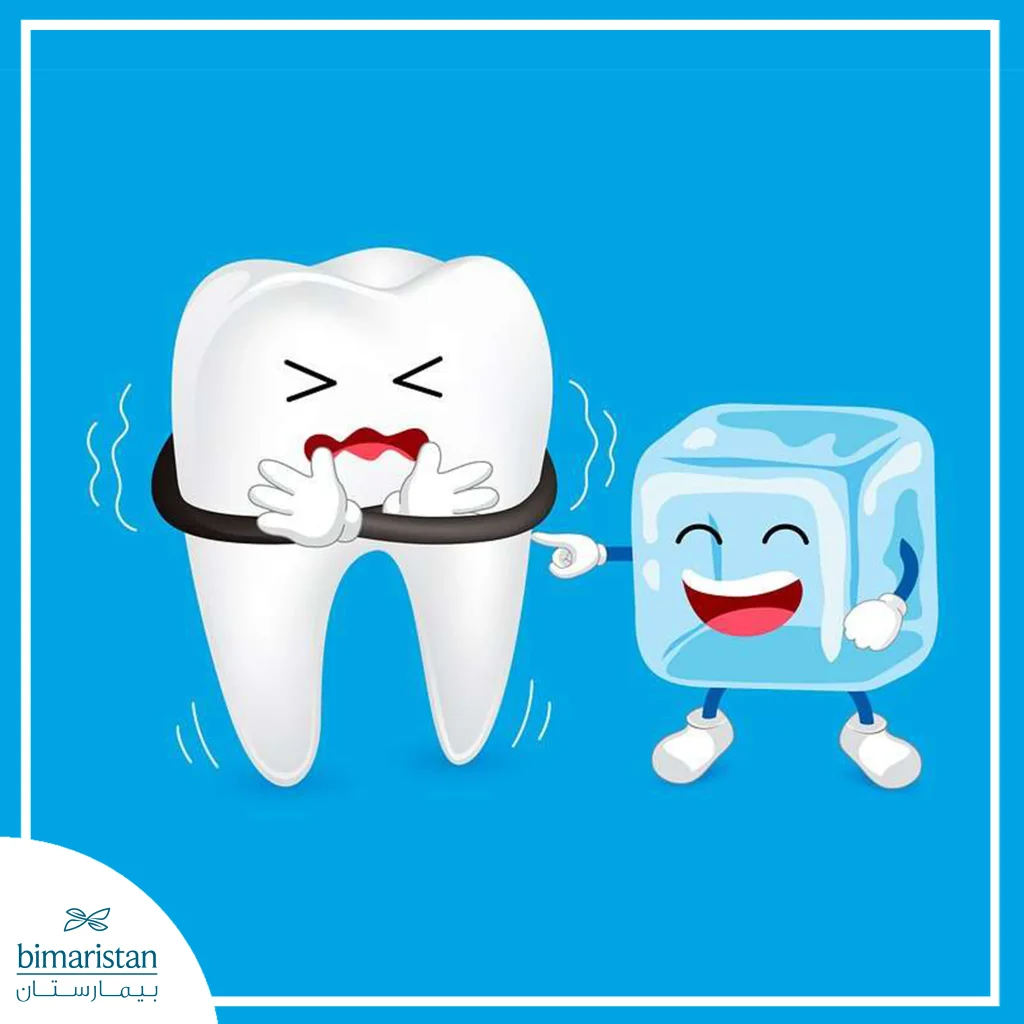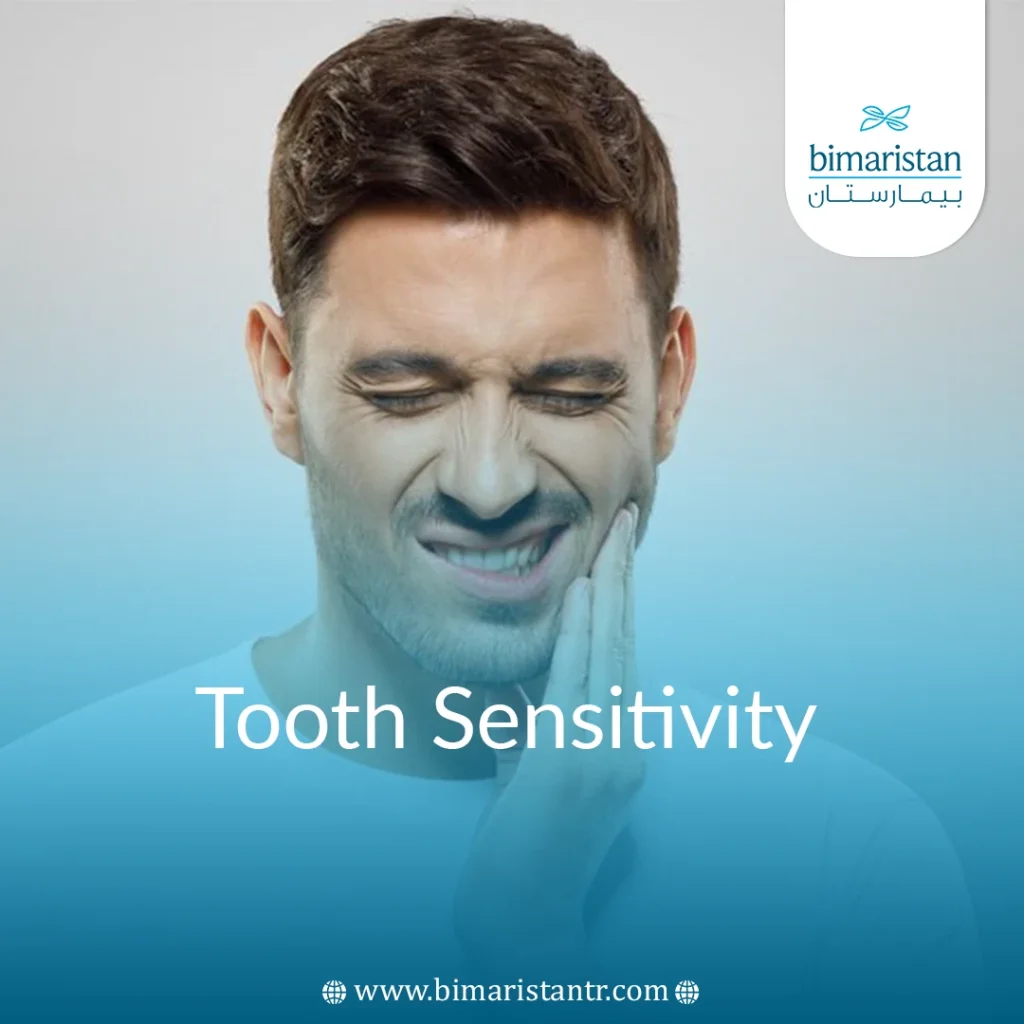Many people who suffer from a short, sharp pain sensation when eating certain cold or hot foods and drinks urgently desire tooth sensitivity treatment.
Do you know what tooth sensitivity is?
If you avoid drinking hot or cold drinks because you know they will hurt your teeth, it may be time to consult your dentist about the possibility of having sensitive teeth. Sometimes, other things, such as sweet and sour foods, can also trigger the pain.
Tooth sensitivity is defined as an exaggerated response to stimuli such as hot, cold, sweet, or acidic foods and drinks, exposure to cold air, and even brushing your teeth.
Symptoms of sensitivity range from a mild tingling sensation to severe discomfort. The pain can come and go and may be worse on some occasions than others. Depending on the cause of your sensitivity, you may not feel pain in all of your teeth.

To treat tooth sensitivity, it is useful to know the causes of its occurrence, which we will discuss in this article. Once the cause is determined, you can treat it and avoid the condition.
Tooth sensitivity treatment at home
If your tooth sensitivity is mild, many practices and methods are recommended for treating and eliminating it.
Once the problem is discovered, there are things that your dentist can use to help relieve the pain and treat the tooth sensitivity you suffer from:
Use a toothpaste specifically for sensitive teeth
To treat tooth sensitivity, choose a toothpaste designed specifically for sensitive teeth. This toothpaste will not contain any ingredients that irritate the person’s gums and teeth and may contain temporarily desensitizing ingredients that help prevent the discomfort from moving to the dental nerve.
Use soft toothbrushes
A tip for treating tooth sensitivity is to change your toothbrush. If you are using a toothbrush with hard bristles, it may make your condition worse. Hard bristles and abrasive toothpaste are hard on the enamel, which leads to more microscopic holes and, ultimately, more sensitivity.
It can also aggravate gum recession, exposing the roots of your teeth. Try a soft-bristled toothbrush and brush gently to protect the surface of your teeth and keep your gums healthy.
Mouthwash
When it comes to mouthwash, choose an alcohol-free mouthwash as it will be less irritating to sensitive teeth.
Making a mouthwash using salt and water can also help reduce tooth sensitivity quickly. Saltwater balances the pH level in your mouth, creating an alkaline environment that reduces the growth of bacteria and plaque.
A saltwater rinse can be easily made by mixing two teaspoons of salt with a cup of warm water. It should be used in the morning and evening until sensitivity improves. Avoid using this rinse if you have high blood pressure.
It usually takes several applications for these treatments to work. You should see improvement within a week.
Treating tooth sensitivity at the dental clinic
If home remedies are not effective, you can consult your dentist, who can help suggest treatments that help strengthen the enamel layer and protect your teeth, such as:
- Applying fillings that cover exposed roots
- Desensitizing toothpaste applied by the dentist at the dental clinic
- Applying sealants for pits, fissures, and cracks
- Applying fluoride gel
- A mouth guard to protect teeth in case of grinding and clenching teeth
- If your condition is severe, your dentist may suggest root canal treatment.
- Gum examination by the dentist
- Dental varnishes and coatings that reduce sensitivity

Your dentist can apply several substances to relieve tooth sensitivity. Fluoride varnish can help reduce tooth sensitivity, as fluoride fills small holes in the tooth enamel that can expose the teeth to temperature changes and other irritants.
Tooth sensitivity treatment caused by a medical condition
Sometimes tooth sensitivity can be a sign of other medical problems, such as:
Recessed gums
If you are over 40 years of age, your gums may show signs of recession by pulling away from your teeth and exposing the roots of your teeth. These roots do not have enamel to protect them, so they are more sensitive than the rest of your teeth.
Tell your dentist if your gums appear to be receding. This may be a sign of other problems, such as gum disease.
Severe cases may require gum graft surgery. A gum graft is taken from the palate and placed over the root to cover the exposed area of the tooth, which helps treat tooth sensitivity.
Gum disease
The buildup of plaque and tartar on your teeth can lead to inflammation and damage to your gums. As the disease progresses, inflammation destroys the bone that supports your teeth, eventually leading to tooth loss. If you reach this stage, you may need to resort to dental implants to replace the missing teeth.
Smoking
Smoking can damage and inflame your gums and cause tooth sensitivity. To treat gum disease, your dentist may perform a deep cleaning of your teeth called scaling and root planing, which removes tartar and plaque that has built up below the gum line. Sometimes, you may need medication or surgery to treat the problem.
Cracked tooth or filling
When a tooth cracks and breaks, the crack line can reach the root, which can cause pain when cold.
Treatment for tooth sensitivity here depends on how your dentist treats the cracks, depending on how deep they are. If it is a small crack that stops before the gums start, the dentist can repair it with a filling, and if it is below the gum line, he will have to extract your tooth.
After extraction, it is usually recommended that a tooth be implanted to replace the missing tooth, restoring normal functions and maintaining healthy bone and gum tissues. Many implants are performed in Istanbul in one day using the latest technologies, making it a target for medical tourism.
Teeth grinding
Teeth grinding over time leads to erosion of tooth enamel, which causes tooth sensitivity. You can train yourself to stop grinding your teeth by paying attention not to do it during the day, and sometimes, treating psychological stress can stop the problem.
Reducing stress can help prevent teeth grinding at night and thus treat tooth sensitivity. If this does not work, your doctor can make a mouth guard that you can use at night to prevent grinding from damaging your teeth.
Gastroesophageal reflux
Gastroesophageal reflux can be treated with acid reducers, and bulimia should be treated under the supervision of a psychiatrist.
Preventing Tooth Sensitivity
If you have sensitive teeth, some of your tooth enamel has likely worn away. Enamel is the hard protective layer that covers the dentin of your teeth. When the enamel is damaged or removed, nerve endings are exposed, which causes the pain. There are several ways to prevent tooth sensitivity:
Don’t brush your teeth too hard
Brushing too hard and applying too much force directly at the gum line can also remove the enamel. To keep the enamel clean and strong, you should use a soft-bristled brush and brush at a 45-degree angle to your gums.
Avoid acidic foods and drinks
Certain acidic foods and drinks, such as coffee, fruits, pickles, and sodas, can damage the enamel, cause cavities, and worsen tooth sensitivity. To avoid tooth sensitivity, they should be consumed at a minimum or avoided completely.
It’s also best to avoid very hot or cold foods and liquids as they can irritate your tooth nerve. Instead, aim to eat light snacks such as:
- High-fiber fruits and vegetables
- Cheese
- Yogurt
- Plain yogurt
These will moisturize your mouth and help fight off acids and bacteria that can damage your teeth by stimulating saliva production and even preventing tooth decay.
Drinking green or black tea or chewing sugar-free gum can be helpful. If you eat something acidic, wait an hour or so before brushing your teeth to avoid damaging your enamel.
Don’t overdo the teeth-whitening process
Fortunately, tooth sensitivity after whitening is usually temporary and goes away over time. Talk to your dentist about how the treatment affects you and whether you should continue with it.
It is also important not to hesitate to follow up on dental care at the clinic when a toothache occurs, as ignoring your teeth may worsen things. Use a brush, toothpaste, and floss twice a day to keep your smile bright and pain-free, and see your dentist for a medical check-up twice a year.
Sources:
- Johns Hopkins
- Healthline
- Ontario Dental
